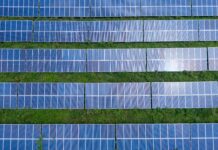Doug Young
Bottom line: Trina’s new loan and BYD’s uncertain outlook for EV sales this year reflect continued reliance of new energy technology companies on state support, which could pressure them as government incentives get retired.
Two new energy stories are in the headlines today, reflecting the progress but also the continued reliance on government support that this up-and-coming group of companies faces. That particular reality isn’t new, though some who were hoping the industries would become commercially independent more quickly may be disappointed. But more important, this reality could challenge many of the companies in the next 2-3 years in the face of disappearing support from governments that believe they have already given enough incentives to this slowly-developing group.
The first development has solar panel maker Trina (NYSE: TSL) announcing $143 million in financing for a new plant in Thailand, with all of the money coming from local lenders that almost certainly have government ties. The second has electric car maker BYD (HKEx: 1211; Shenzhen: 002594; OTC: BYDDF) reporting annual results that showed a surge in its EV business last year thanks to government incentives, setting the stage for a possible rapid slowdown this year as those incentives get set to retire.
Let’s begin with Trina, whose new Thai plant is aimed at producing solar panels that will be exempt from anti-dumping duties in the US and similar duties likely to come from Europe later this year. In that context the launch of the new factory looks like good news, as it will help Trina to avoid potentially serious fallout that would have come with the loss of sales in 2 of its most important markets.
Trina says the new Thai plant has just formally begun production with 500 megawatts of annual capacity for modules, and 700 megawatts for finished solar cells. (company announcement) Trina also announced $143 million in financing from China’s Minsheng Bank (HKEx: 1988; Shanghai: 600016) and Thailand’s Siam Commercial Bank Public Co to pay for and operate the plant.
To call this particular loan government-backed would be slightly misleading, since Minsheng is technically a private lender. I’ll admit I’m less familiar with Siam Commercial Bank. But I expect that both companies are private institution with close state ties, which is quite common in this kind of developing economy.
A better sign of true commercial viability for this project would have been financing from some big western lenders. But in this case it’s not clear if Trina could have secured such financing. And it’s also quite likely that even if it could get financing from such sources, the terms wouldn’t be as favorable as the ones it’s getting under this new deal.
Global EV Leader
Next let’s look at BYD, which has just announced annual results that show its profit leaped 6-fold and revenue jumped 40 percent last year, as it bounced back from a major company overhaul. (company announcement) BYD officially became the world’s biggest new energy car seller last year thanks to a surge in sales in its home China market, with sales tripling during the year to about 58,000 units.
BYD was once a stock superstar after billionaire investor Warren Buffett bought 10 percent of the company in 2008. But it has lost much of its luster since then after its new energy cars failed to quickly gain traction. Even Buffett seems to have lost interest, and his share of the company has dropped to 9 percent as he was diluted by BYD’s own new share issues to raise cash.
BYD doesn’t break out its new energy vehicle sales by country in the new results, though it says that China’s share of its overall revenue grew to a overwhelming 90.2 percent in 2015 from 86.5 percent the previous year. A big part of that most likely came from surging electric car sales. But Beijing recently discovered that many electric car buyers were making their purchases simply to get the government incentives, and had no intention of actually driving the cars.
Realizing that, Beijing has moved quickly to retire most of the incentives this year, and BYD acknowledges that the industry will be driven more by fundamentals than government incentives. That could translate to a sharp slowdown or even contraction in BYD’s new energy vehicle sales this year, since it’s not at all apparent that very many people are actually interested in such cars.
Doug Young has lived and worked in China for 20 years, much of that as a journalist, writing about publicly listed Chinese companies. He currently lives in Shanghai where, in addition to his role as editor of Young’s China Business Blog, he teaches financial journalism at Fudan University, one of China’s top journalism programs.. He writes daily on his blog, Young´s China Business Blog, commenting on the latest developments at Chinese companies listed in the US, China and Hong Kong. He is also author of a new book about the media in China, The Party Line: How The Media Dictates Public Opinion in Modern China.






